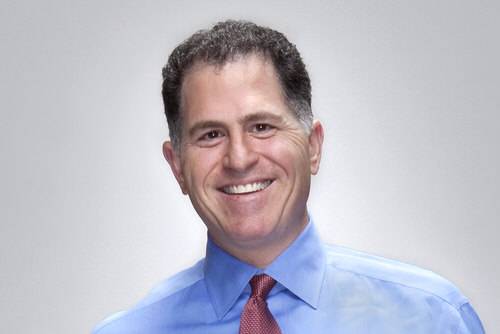
Dell Inc. confirmed Tuesday that it has agreed to a $24.4 billion deal that will take the company private, removing the second-largest PC company from the prying eyes of investors, analysts and regulators. But its partner Microsoft may provide at least a small window into the company’s finances.
(See also: Michael Dell Goes To Hell.)
What The Deal Looks Like
Michael Dell and a collection of financial partners, including Silver Lake and MSD Capital, will buy up Dell’s outstanding shares at $13.65 apiece, representing a 25% premium over Dell’s closing price on Jan. 11., the day before the rumors of Dell going private surfaced. (A company like Dell that goes private must buy up all the company’s outstanding shares, which means offering shareholders an incentive – a better price on their shares then they could otherwise get.)
The deal also includes a $2 billion loan from Microsoft, which is not a permanent investment. Terms of the loan were not disclosed. In addition, debt financing was provided by a number of Wall Street banks. Dell Inc. also said that a Special Committee in charge of the deal would be open to alternative proposals during a 45-day “go shop” period, although the person or group that proposed an alternative deal could be subject to termination fees of between $180 million to $450 million.
Michael Dell will retain his title as CEO and chairman, and will contribute his 14% stake in the company; which means that the company will buy up his shares, paying him a very large sum in return. Dell approached Silver Lake last August to take the company private, and the company formed a special committee at the time to evaluate its options.
What The Deal Means For Dell
“I believe this transaction will open an exciting new chapter for Dell, our customers and team members,” Michael Dell said in a statement.
For Dell, going private means that the company can invest in new technologies and otherwise pursue risky strategies that shareholders could otherwise criticize. With the buyout, Dell Inc. answers to no one, save for the banks and Microsoft, who are funding the deal. It also gives Michael Dell himself an exit strategy, should he wish to step down or if the banks choose to replace him.
“We can deliver immediate value to stockholders, while we continue the execution of our long-term strategy and focus on delivering best-in-class solutions to our customers as a private enterprise,” Dell added. “Dell has made solid progress executing this strategy over the past four years, but we recognize that it will still take more time, investment and patience, and I believe our efforts will be better supported by partnering with Silver Lake in our shared vision. I am committed to this journey and I have put a substantial amount of my own capital at risk together with Silver Lake, a world-class investor with an outstanding reputation. We are committed to delivering an unmatched customer experience and excited to pursue the path ahead.”
Microsoft: A Window into Dell’s Finances
It’s possible, however, that Dell won’t go completely private. For the period of time that Microsoft’s loan is active, Microsoft’s shareholders are going to want to know how its investment is doing. Microsoft accounts for its investments on its income statement, and could break out the Dell investment as a separate line item. That number won’t offer much insight into how profitable the newly private Dell is, or what revenues it will have pulled in, but it will indicate whether Dell’s business is going in a positive or negative direction.
“Microsoft has provided a $2 billion loan to the group that has proposed to take Dell private,” Microsoft said in a statement. “Microsoft is committed to the long term success of the entire PC ecosystem and invests heavily in a variety of ways to build that ecosystem for the future.
“We’re in an industry that is constantly evolving,” the company added. “As always, we will continue to look for opportunities to support partners who are committed to innovating and driving business for their devices and services built on the Microsoft platform.”
So why Dell? Influence.
“Microsoft, with a $3 billion investment, would get a certain amount of control and influence over Dell,” wrote Patrick Moorhead, a former corporate fellow with AMD and now principal of his own analyst firm, Moor Insights, in an email earlier this month. “Dell has pulled back from the PC business as of late and that is not good for Microsoft as its cash cow is Windows. An investment of this size could guarantee a longer term Windows customer.”
Besides the consumer market, Microsoft could steer Dell toward being more focused on the Windows platform for the data center, rather than “trying to do everything for everybody,” said David Johnson, analyst for Forrester Research, in an earlier interview with ReadWrite’s Antone Gonsalves. In addition, Microsoft could get access to Dell’s enterprise sales force and could provide a “converged infrastructure” that unifies the silicon, the hardware, the operating system platform and the management and operation tools.
The deal is expected to be completed by the end of the second quarter. Dell’s future will become a bit more shadowed then, by its own choice.

















